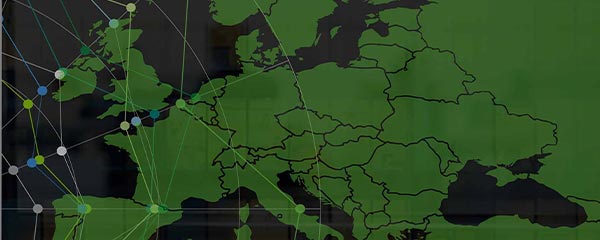Story Highlights
- The region faces above average workplace stress but is poised for success
- Employee engagement and workplace wellbeing represent big opportunities
- People management expertise will help win the battle for talent
Australia and New Zealand have so far avoided the worst of the pandemic. Australia reports 910 COVID-19 deaths in a population of 26 million, and New Zealand has reported 26 deaths among its five million residents.
According to Gallup's State of the Global Workplace: 2021 Report, of all the regions in the world, the impact of COVID-19 has been comparatively mild in Australia: Just 22% say they have been "affected a lot," versus the global average of 45%, by "the coronavirus situation."
Moreover, fewer Australians (who were employed at the time of the pandemic) than most people in the world have lost jobs, pay or hours. And their life evaluations are the highest: 57% are thriving, compared with the global average of 32%.
Employed Australians and New Zealanders are also among the least worried in the world -- 31% experienced daily worry versus the global average of 41%. Though they are slightly more likely than the global average to experience day-to-day stress -- 45% vs. 43%.
The economic recovery will fuel a war for talent.
Australia's relatively positive results relating to the pandemic are largely due to the swift response of their governments: Leaders closed borders early, responded to COVID-19 outbreaks quickly, and communicated honestly, frequently and clearly.
Now, as leaders focus on vaccine rollouts and reopening their borders, business has already returned to pre-pandemic levels. "Most significantly, unemployment is falling and there are more people employed now than pre-COVID," said Australia-based Westpac Banking Group's CEO, Peter King. "A strong labour market will continue to support growth in the economy."
However, while employed Australians and New Zealanders are already where most of the world wants to be -- and acutely aware of how good their lives are by world standards -- they're not immune to stress. Unlike less fortunate nations, Australia and New Zealand's stress relates more to the integration of busy work and home lives, which is a very real concern that has very real impact on the workplace.
Australian and New Zealander women, for instance, left the workforce at higher rates than men during the pandemic, largely because a greater burden of childcare fell on them (and Gallup found that working women in the region were more worried, stressed and sad than men during the pandemic, too).
As the economic recovery continues and the labor market gets tighter, a war for talent becomes more likely. The winners will be organisations that create engaging and thriving workplaces with high wellbeing, where employees can integrate work and life more effectively.
Gallup finds that they'll have plenty of opportunity: Employee engagement in Australia and New Zealand hovers around the global average of 20%.
As the economic recovery continues and the labor market gets tighter, a war for talent becomes more likely.
Managers hold the key.
That number can certainly improve if companies adopt what highly engaged organisations already do -- encourage frequent, honest, manager-led conversations.
It's well established that employees want a coach, not a boss. Companies that successfully transitioned to remote work and strengthened engagement through the pandemic did so with frequent, honest, manager-led conversations.
Those conversations enabled teams to quickly pivot to a radically different workstyle. Not just because dialogues enrich relationships -- though they do -- but because such conversations help managers set expectations, create accountability and help workers use their strengths in pursuit of the company's goals.
That's why conversations are at the core of employee engagement. Organisations that encourage more conversations centred on the elements of engagement -- especially as they seek the right balance between home and office working -- can preserve and expand on the engagement foundation they've built.
Equip managers to create thriving teams.
Improving wellbeing has an additive effect on employee performance over engagement alone, Gallup finds. Yet, wellbeing has not traditionally been considered the domain of businesses and certainly not managers. The pandemic has challenged this notion -- often, in all the best ways. "What we saw in COVID [was] the deep, deep capability of our people … and the broader system," said Waka Kotahi NZ Transport Agency Chief Executive Nicole Rosie. "It's not about the CE, it's about a highly empowered organisation and … building a really highly engaged, really effective team."
Even before the pandemic, those highly effective employees expected managers to be more empathetic to their broader life situation, requiring that managers take a more holistic approach. But managers often need development, as most aren't taught how to open doors to conversations that go beyond day-to-day work topics.
Strengths-based organisations have an advantage. Their managers are equipped with the skills and tools to conduct conversations about what really matters to their people and the company's goals. When managers adopt a strengths-based approach, they can personalise work in a way that engages the individual and accelerates performance. This may yet be an antidote for stress and a route towards a thriving team.
Knock down engagement barriers.
Australia and New Zealand are in a fortunate position in terms of public health, but also in terms of time. Because the countries had so few COVID-19 cases, their economic recovery has been a global frontrunner. As early adapters to the post-pandemic future, their businesses have a significant advantage in the global marketplace.
Mediocre employee engagement will be a drag on organisational performance and recovery for Australia and New Zealand. But it doesn't have to be -- their barriers to engagement are apparent and repairable. The organisations that focus on knocking those barriers down will have a jump on competitors at home -- and across the world.
Attract the kind of talent your competition dreams about:
- Create a culture that improves employee wellbeing and builds better lives.
- Make employee engagement part of your organisation's DNA.
- Teach your managers to coach employees to greatness.






